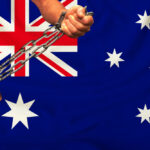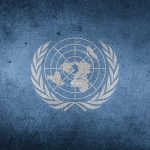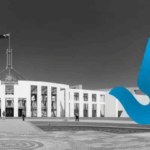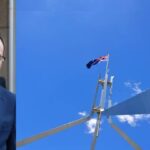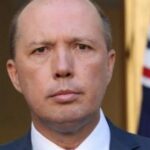The By-Design Lack of Federal Rights Protections Is Driving Australia’s Authoritarian Drift
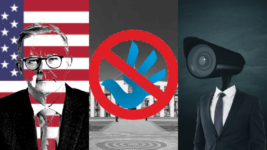
“Australians are unaware of the vast inroads made into our civil liberties by the most authoritarian western democracy currently in the world: Australia,” ACT barrister Bernard Collaery told the Guardian in April. “Democratic Australians are just asleep at the wheel.”
And he ought to know. The former ACT attorney general spent the four years to mid-2022 fighting against the Australian government’s attempt to prosecute him behind closed doors for revealing state secrets. And it likely dropped the case as he was successfully lifting the veil of secrecy.
The erosion of liberties that Collaery refers to has been a bipartisan national security law-enacting drive that commenced right after 9/11. And while this was a UN-directed move in response to the New York terror attacks, this nation has excelled in the process like no other comparable country.
UNSW Professor George Williams explained in 2017 that the reason why this country has outdone others in establishing laws that exceed theirs in volume and reach is that Australia is the only liberal democracy globally without a federal bill of rights or Human Rights Act enshrining such protections.
Indeed, this dearth of federal legislation upholding basic human rights is coupled with a constitution that provides a handful of obscure rights guarantees, which explains the stark drift of recent years to a form of governance that’s opaque, that dictates the agenda and is accountable to no one.
Designed to discriminate
British Queen Victoria enacted the Australian Constitution in mid-1900, and it came into effect on 1 January 1901. And to this day, the British monarch, currently King Charles III, remains the official head of state. Some say this is mere formality, yet outdated legislation is usually modernised.
As former High Court Justice Michael Kirby explained in 1997, the constitution’s drafters voted against including a bill of rights similar to that of the US, as it could undermine “discriminatory” laws, especially those that “disadvantaged Aboriginal people and the Chinese in Australia”.
The few rights protected in the founding document are the right to vote, that acquisition of property must be just, the right to trial by jury, the right to free trade across state borders and freedom of religion. And the High Court found in 1992 that it also implies a right to free political communication.
In a recent article, Australian Community Futures Planning founder Bronwyn Kelly presented a damning appraisal of the Constitution, as she points out it doesn’t protect the people living here but rather only delegates which level of government make laws pertaining to different matters.
“The reality is that the ‘democracy’ we live in is a very limited one because it is governed by a Constitution under which laws can all too easily be made that completely undermine our fundamental human rights,” explains Kelly.
The advocate for constitutional change points out that there are no stipulations in the document to maintain laws are in the public interest, that they promote democracy and in a time of drastic ecological changes, there is nothing to maintain public and planetary health and sustainability.
This means the recent shift towards press raids, freedom of information breakdown, the 100-odd rights-eroding national security bills passed since 9/11, the blurring of defence, law enforcement and intelligence and the outlawing of civil protests have always been achievable under the Constitution.
The voice to authoritarian rule
First Nations peoples are being presented with the chance to have the rest of the community vote on whether they’re recognised within the Constitution. This will ensure a body known as the Voice exists, but not in what form. And it will provide them with the same dearth of rights protections.
Many First Nations political activists point out that the Constitution still holds the British Crown as the ultimate ruler of the colony of Australia. And while Anglo-Australians will more often than not shake their heads at this assertion, the official document clearly outlines this to be the case.
The first part of the Constitution establishes that legislative power rests within federal parliament, which is comprised of the British monarch, the House of Representatives and the Senate. And as head of state, the monarch appoints the Australian governor general as its local representative.
But due to convention, not any law, it is the PM that today appoints the GG. But in turn, the GG can sack the PM. And the GG not only provides royal assent to legislation thus making it law, but the monarch retains the power to intervene and disallow any law within 12 months of it being passed.
The section also establishes the executive arm of government, with the Constitution bestowing executive power to the British monarch, and the GG exercising power to appointing ministers. And there are no provisions for the creation of a prime minister and cabinet, as this too, is by convention.
Part one also establishes the third arm of government: the judiciary, with the High Court of Australia holding the ultimate judicial power. And the governor general has the power to appoint judges, although, by convention, it’s the attorney general who actually does this at present.
Therefore, First Nations peoples are being asked to enter into a document that actually preserves ultimate power in the British Crown, upholds a pitiful number of rights, and leaves much of our government institutions running via flimsy conventions, as too would the Voice be on establishment.
Human rights could be protected
Various states have enacted Human Rights Acts. But as Civil Liberties Australia CEO Bill Rowlings recently told Sydney Criminal Lawyers the rights protections at state and territory level only protect citizens and residents in relation to the powers the Constitution bestows upon those jurisdictions.
Therefore, there are no rights-protections involved in the wielding of federal law and the enactment of more such powers.
Attempts to enact a federal Human Rights Act have been made periodically by Labor, commencing with AG Lionel Murphy in 1973. This again occurred with AG Gareth Evans in 1983. Then PM Kevin Rudd launched a 2008 inquiry into a HRA, only to go on to deny proceeding with it two years later.
Civil Liberties Australia has been campaigning since 2019, to ensure that once a federal Labor government was elected into office that it would hold an inquiry into enacting a national HRA, and the Australian Human Rights Commission released its position paper on the proposal in March.
Australian attorney general Mark Dreyfus launched the promised Parliamentary Joint Committee on Human Rights’ Inquiry into Australia’s Human Rights Framework a fortnight later, with the aim of deliberating upon enshrining human rights protections in federal law.
But the clear issue is whether Labor is simply conducting the inquiry to be seen to be doing something, as this is one of the party’s favourite pastimes.
Every time it has considered a HRA in the past, federal Labor has dropped the proposal in the end. And this year, it shot its own war powers reform inquiry in the foot before it had even completed its task.
Yet, at a time when Labor has been hiding global heating risk reports, militarising the nation in preparation for war on China and continuing to tighten the secrecy surrounding its intelligence agencies, does empowering citizen’s human rights assist in the achievement of these other aims?
Because as it seems the initial decision not to uphold citizen’s rights in order to maintain the ability to pass laws that breach them, and then having periodically reaffirmed this position, might be the ideal way for an unaccountable government to proceed in a time of rising multiple crises.


